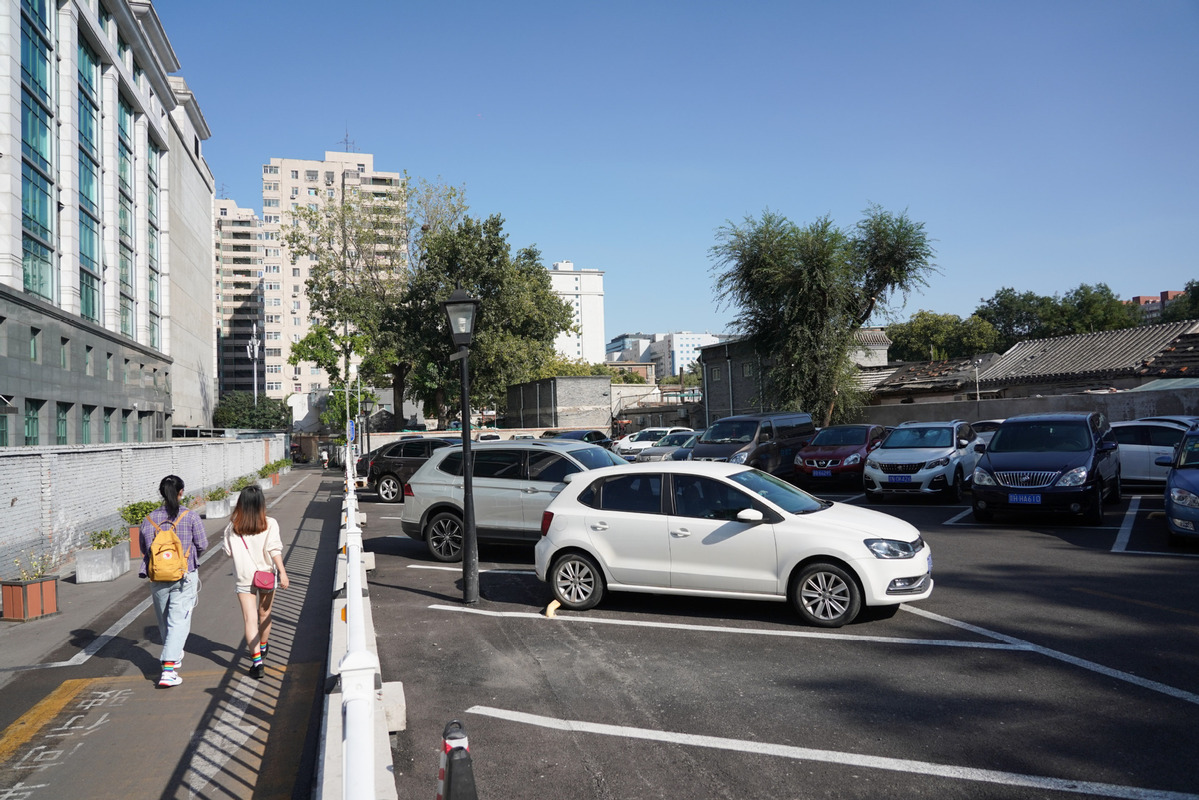Marketing part of solution for parking
By Sun Hairui | chinadaily.com.cn | Updated: 2022-03-14 17:20

While the number of vehicles is rising, parking remains a problem; studies show that China is short of 80 million parking spots. And the problem is particularly acute in the bigger cities.
The problem is an outcome of a largely divergent growth in demand and supply. With the rapid growth of the economy, the number of motor vehicles has shot up, exceeding planners' expectations and creating parking problems.
Cities began paying attention to parking lots in residences during the 1990s. Now nearly every newly built upscale residence complex has parking space. Only older housing estates have parking issues.
Then there is the problem of price mechanism. More than 50 percent of parking spaces don't charge anything, even in cities that have limited land resources. In fact it is this free parking facility that has led more people to buy vehicles, making the parking problem worse.
Right now the concept of parking in a designated space and paying for it, and being penalized for parking illegally, is non-existent, as a large number of motorists are used to free and random parking.
Overseas, many cities have used very high parking fees to deter people from driving and/or parking, given the space crunch. However, the absence of a law enforcing paid parking in China has led many to park at random. The parking fee, thus, serves no purpose.
And there are often more takers for on-street free parking that leads to congestion, than for off-road parking facilities, which are rarely visited. The existence of free parking has led to the sluggish development of parking spaces and the market cannot adjust the parking demand and supply through a price mechanism.
A thorough analysis of parking development in cities around the world has shown that developing parking lots through public finance cannot resolve the issue. What's required is motivating society and giving play to the decisive role of the market in allocating resources while the government propels development of parking.
In terms of implementation, the problems that curb the development of marketization, such as ownership and land system, should be resolved to lay the foundation for marketization.
An ownership registry system of parking facilities should be constructed to confirm the ownership, transfer, mortgage, correction and logout of facilities.
The land supply system for parking facilities should be optimized. The green land index requirement in residence should be adjusted to flexibly increase parking facilities and reduce the land supply barriers.
The on-street and off-road free parking should be modulated. It would be better if employers do not provide free parking facilities in office areas, thus encouraging employees to pay for parking.
Meanwhile, the managements of random parking areas should be strengthened.
Furthermore, the upper limit of punishment for illegal parking should be raised.
The rapid development of Internet plus also presents new opportunities for the parking industry. Dispersed parking resources can be aggregated through informatization and intelligentized methods to realize the optimized allocation of parking resources and improve the overall utilization efficiency of parking resources.
Looking back, Tokyo and New York were struggling with the same problem 50 years ago. They controlled the problem by parking management law system, scientifically planning parking spots and setting up meter charges. Letting the price mechanism work and enforcing the law is the key to resolving parking issues in cities.
The author is the senior engineer of Beijing Best Transport Tech Co. Ltd. The views don't necessarily represent those of China Daily.
If you have a specific expertise, or would like to share your thought about our stories, then send us your writings at opinion@chinadaily.com.cn, and comment@chinadaily.com.cn.
























